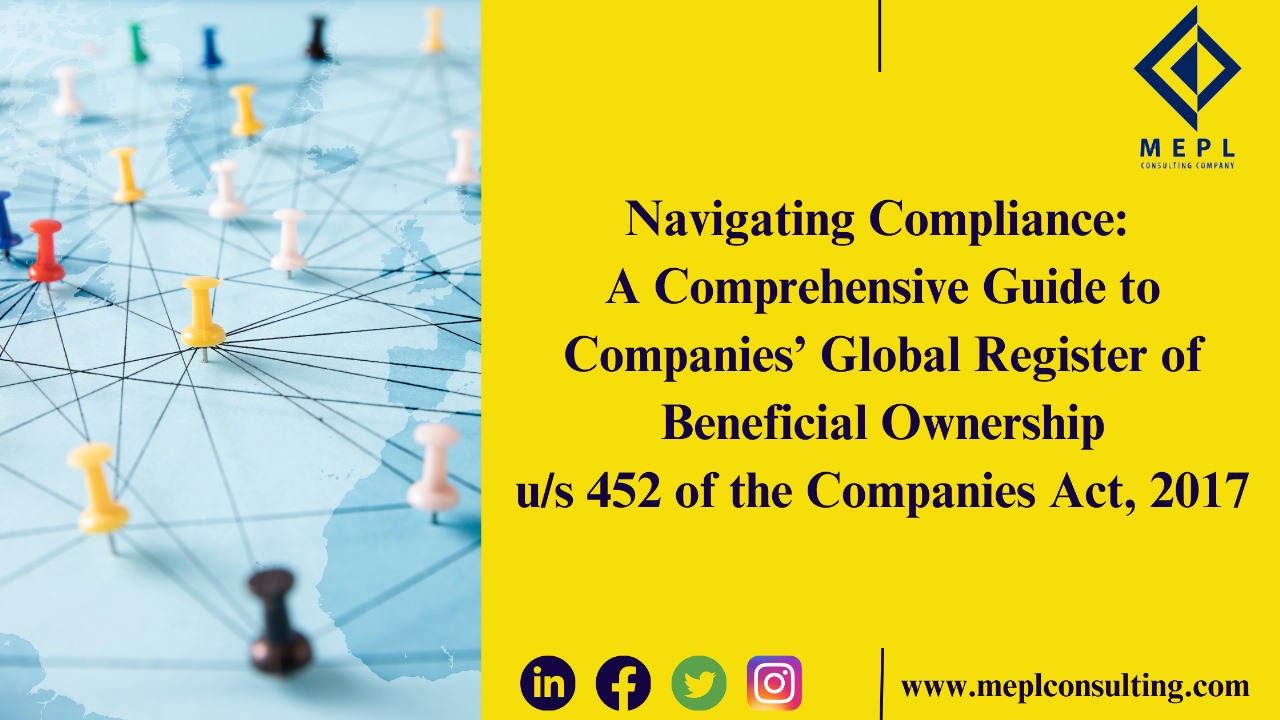Introduction:
Corporate governance is like a complex puzzle, where transparency and accountability are the key pieces. One important way to make sure companies follow these principles is through the Companies’ Global Register of Beneficial Ownership. It’s a requirement set out in Section 452 (1) of the Companies Act 2017. This article aims to make this rule easier to understand, providing a clear guide on how to follow it.
Understanding the Reporting Obligations:
Central to this mandate is the imperative for substantial shareholders or officers of a company to disclose their shareholding or interests, as delineated in Section 452 (1) of the Companies Act 2017. Irrespective of geographic boundaries, individuals holding significant stakes in foreign companies are also subject to this requirement, reaffirming the global scope of transparency endeavors.
Changes in Reporting Forms:
The way companies report information has changed, as per SECP S.R.O. 201 (I)/2024. New rules in Regulation 63 & 30 of the Companies Regulations, 2024, have simplified the process. Instead of dealing with multiple forms, companies now use a single form known as Form-11. This consolidation streamlines reporting requirements, making it more straightforward for companies to comply with regulations and submit the necessary information.
Stepwise Compliance Procedure:
- Submission of Information to the Company:
Pursuant to Section 452 (1), upon assuming a substantial shareholding or officer position, individuals must expeditiously report this information to the company. This mandates the maintenance of accurate records pertaining to beneficial ownership within corporate entities, fostering transparency and accountability.
- Annual Submission to the Registrar:
Subsequent to initial reporting to the company, all collated information must be furnished to the registrar alongside the annual return, as stipulated by Section 452 (1)(2) of the Companies Act 2017. Even in scenarios wherein companies are exempt from annual return filing, adherence to the Form-11 requirement within thirty days from the conclusion of the calendar year remains obligatory.
- Reporting Investment in Foreign Companies:
A big part of following the rules is telling about any money put into companies outside the country, as mentioned in Section 452 (1)(3) of the Companies Act 2017. This shows how important it is to be open about who owns what, even across different countries. It helps to understand who really owns things.
- Special Return to the Registrar:
Section 452 (1)(4) mandates the submission of a special return to the registrar within sixty days from the enactment of the Companies Act 2017. Subsequent reporting obligations adhere to the prescribed framework delineated in the Act.
Consequences of Non-Compliance:
According to Section 452 (1)(5) and (6) of the Companies Act 2017, failing to comply with the regulations can lead to serious consequences. Those who don’t follow the rules may be subject to fines and penalties. This emphasizes the importance of following the rules in corporate governance.
Here’s the relevant section of the law:
Section 452 (1)(5) and (6) of the Companies Act 2017:
“(5) Any contravention or default in complying with requirements of this section shall be an offence liable to a fine of level 1 on the standard scale and the registrar shall make an order specifying time to provide information under sub-section (1) and (3).
(6) Any person who fails to comply with the direction given under sub-section (5) by the registrar shall be punishable with imprisonment which may extend to three years and with fine up to five hundred thousand rupees or both.”
Maintenance of Companies’ Global Register of Beneficial Ownership:
A cornerstone of this regulatory landscape is the Companies’ Global Register of Beneficial Ownership, overseen by the Commission. This repository of information assumes paramount importance in engendering transparency and facilitating regulatory oversight.
Conclusion:
As we navigate through the complexities of corporate compliance, one thing stands out above all else: sticking to the rules is essential. The Companies’ Global Register of Beneficial Ownership is a shining example of this commitment to being open and accountable in corporate management. By following these reporting requirements, companies not only fulfill their duties to the law but also build trust with everyone involved.
For more information or assistance with compliance matters, feel free to contact us:
Phone: 03337643557
Email: info@meplconsulting.com
Website: www.meplconsulting.com.

